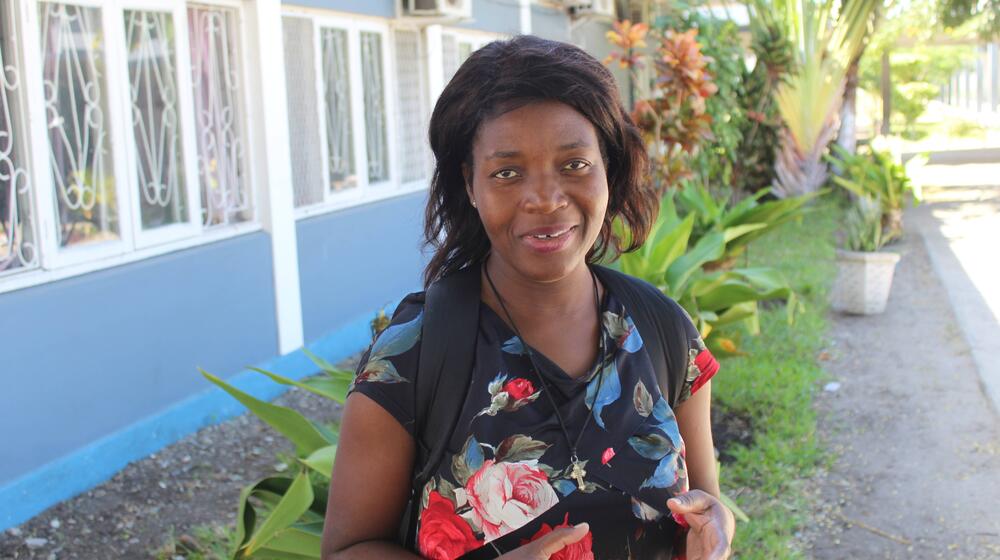News
Not your typical boys’ club: Mozambique’s school meetings engage students against gender-based violence
- 18 September 2023
News
BEIRA, Mozambique – “Men think that women should be submissive towards them and accept everything … If a woman refuses to follow the man’s rules, she ends up being beaten.”
Such were the words of a female student at a secondary school in Maputo, the capital of Mozambique, when participating in a 2023 study on gender-based violence.
Gender-based violence is a pervasive problem for women and girls in Mozambique, the risk of which starts early in life. In 2016, nearly half of all 15-year-old girls reported having already been subjected to domestic, sexual or emotional violence by their partners.
Perpetuating this abuse are chauvinistic norms and practices, including the belief on the part of about 20 per cent of people in an earlier study that a husband’s violence against his wife can be justified.
Among those who don’t swallow such misogynistic myths, however, is 14-year-old Cleiton Adriano – a ninth-grader from Beira who leads a boys’ club at his school to challenge stereotypes around masculinity and promote women’s rights.
“Spreading positive messages about gender equality and the empowerment of girls is one of my daily tasks at school,” he said. “I am proud to see changes in [members’] behaviour, actions and mindset.”
Making a choice to change
Many of the behaviours that drive gender inequality are unconscious. Clubs like Cleiton’s make men and boys more aware of misogyny – and help to change their minds about what makes a man.
Cleiton is one of more than a dozen youth leaders trained to guide peer-to-peer discussions on issues such as gender-based violence, toxic masculinity and sexuality. With six members, his is one of 14 clubs launched with support from UNFPA and the Korea International Cooperation Agency (KOICA) across the districts of Beira, Búzi, Dondo and Nhamatanda since 2021. Mostly held at secondary schools, these boys’ clubs draw attendees aged 13 to 20 and are held almost weekly.

Grade 10 student Leonel is one attendee. He said he used to be a school bully – especially of his female classmates – but since participating in Cleiton’s club, he has changed.
“After joining the sessions, I realized my misconceptions and now aim to share positive information with both my classmates and my community,” he said.
Like son, like father
While many of the UNFPA-supported boys’ clubs meet at school, that’s not the only place they’re having an impact. The sessions are also changing the attitudes of boys’ families at home, and the behaviours of participants out in their communities.
“One great gain was the change in mentality of some parents and guardians who believed that their sons’ involvement in activities addressing gender-based violence and sexual and reproductive health would compromise their masculinity,” said teacher Cremilda Gravata, who supports a boys’ club at her secondary school in Beira.
Meanwhile, another participant of Cleiton’s club, Benilton, said attending has encouraged him to speak out about rights abuses against women and girls. “Thanks to the sessions, I identified and helped to report cases of gender-based violence in my community,” he said.
In this way, the boys’ club initiative has helped transform men and boys across Mozambique into allies whose support can accelerate the achievement of gender equality. So far more than 400 adolescents and young people have participated.
That number will continue to grow, with people like Cleiton leading the charge. He told UNFPA one of his greatest desires is to “become an agent of positive change” in his community, and with allies like Leonel and Benilton extolling the benefits of the boys’ clubs, it seems that dream has already become a reality.